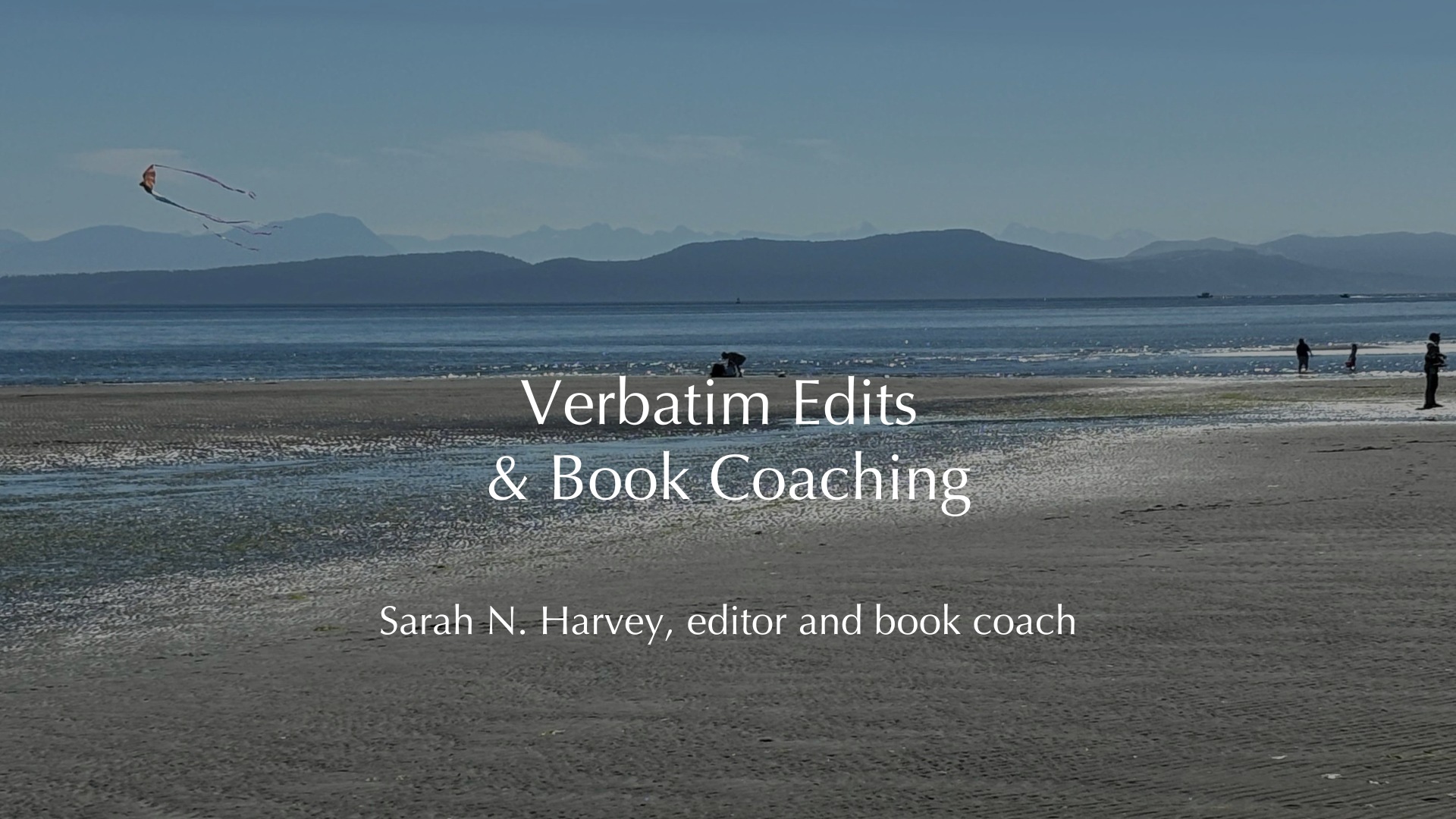I say this over and over again to anyone who will listen: editing (and book coaching) is 75 percent relationship and 25 percent mechanics. Maybe even 80/20 sometimes. If the relationship isn’t there, then the process can be, well, painful. Each editing relationship is different, of course. There is no “one size fits all” way to edit or coach a writer. I learn as much from the writers I work with as the writers learn from me, and I wanted to tell the stories of some of the incredible people I’ve had the honour and pleasure of working with. Off the Page is the result.
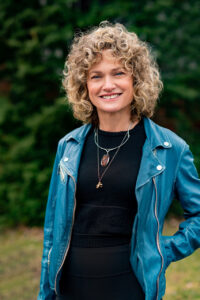
Monique Polak is a force of nature. In a good way. She does not wreak havoc, but she does have a seemingly endless amount of energy. She is also talented, funny, kind, brave and super-fun to hang out with.The first time I met Monique was in a small seaside town called Sidney, about 20 miles from Victoria, where I live. I had just started working at Orca, and I was with my predecessor, the wonderful Maggie de Vries. A small woman with a head of blond corkscrew curls rushed by us on the sidewalk. “Monique?” Maggie called out. The woman turned, recognized Maggie, and gave us both the full force of her gazillion-watt smile. We chatted briefly–she was on her way to a book event –and as she charged away, I said to Maggie, “Who was that?”
I was about to find out.
Over the course of the next few years I would work on eleven books with Monique, who sees stories everywhere: in a boxing gym (Straight Punch), in Nunavik (The Middle of Everywhere), in a support group for grieving kids (Planet Grief). She has written about domestic violence (So Much It Hurts) and custody battles (For the Record).
Her first book for Orca was published in 2004. In about 2006 she submitted a YA novel to Orca. Up until then she had been writing short hi-lo books for reluctant readers. This new book was based on her mother’s experiences as a young teen in a Nazi concentration camp, and it was heartbreaking and brilliant.
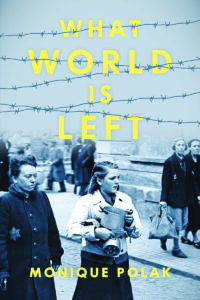
What World Is Left was an important book for me as an editor. I hadn’t been at Orca very long, and I wanted to prove that I could edit YA fiction. The book was a Holocaust novel, and I am not Jewish. And not only was it a Holocaust novel, but it was based on the stories Monique’s mother, Celine, had told her. For years Celine had not spoken of what had happened to her in Theresienstadt. When she finally did, Monique wanted to write about it. Not a biography. A novel. A novel for teens.
My first job as an editor is obviously to read the manuscript and think about it for a while before I make any comments. My next job is to listen. To the book and to the author. The next job is to learn. From the book and from the author. Then the author-editor conversation can start.
It wasn’t easy for Monique to do some of the things I asked her to do: First and foremost was to create a character who was inspired by her mother but was not her mother. We both worried about offending or upsetting Celine. We needn’t have worried. Celine loved the book and often came to events where Monique was promoting the book. She was often the star of the show.
Monique has been quoted as saying, “I’m not super-talented but I am a super hard worker.” It’s true that she does work incredibly hard on her books, but I have to disagree about the talent part. She has talent (and energy) to burn.
Here’s what Monique said when I asked her to describe our working relationship:
“I have always felt that my writing could not be in more capable hands than Sarah’s. She is whip-smart and super sensitive. Most importantly, she has pushed me to go deeper into my characters’ hearts. I have come to rely on her wise, measured input. I also love that Sarah is no-nonsense; the two of us have a very direct way of communicating, which has made my life — and the rewriting process — easier. Sarah asks hard questions. And her instincts inevitably turn out to be right. When we worked on What World Is Left, she felt that my narrator needed to question her father’s actions more than she did. Because the manuscript was based on the story of my mum’s childhood experience in Theresienstadt, this wasn’t easy for me to do. But I did it — and the result was a far better book.
Sarah went on to edit many more of my Orca books (both fiction and non-fiction), as well as my latest middle-grade novel published by Owlkids. I always understood what a privilege it was to work with her. I’m working on a new middle-grade novel now. I’ve already hired Sarah to look at my first six chapters. Once again, she zeroed right in on what I could do to reach deeper into my characters.
I should also say that over the years, Sarah has become a trusted and much-loved friend.”
After the publication of What World Is Left I received a slim padded envelope in the mail. Inside was a piece of yellow fabric with a Star of David printed on it. In the center of the Star is the word JUDE. Around the Star is a black dotted line. It was part of a bolt of fabric that the Nazis left behind as they fled Theresienstadt. Celine’s mother picked up the bolt and carried it out of the camp; since she had no idea where they were going or what they would need when they got there, she thought fabric of any sort might be useful. Even fabric printed with the hated yellow Star.
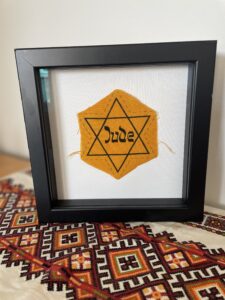
Monique’s latest book is also her first picture book. The Brass Charm is based on a moment of kindness experienced by Monique’s mom when she was imprisoned as a child. Monique says “I feel like I was put on Earth to learn about the Holocaust and write these stories. How lucky am I that I found the thing I was meant to do!”
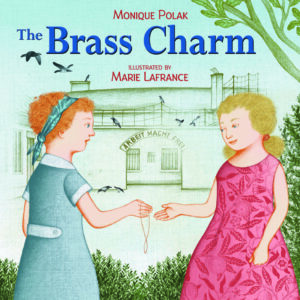
And how lucky am I that I get to work with Monique and be her friend?
For more about Monique, go to (moniquepolak.com)
If you’d like to chat with me about how I might help you with your writing, click here for a free 20-minute consultation. Let’s make the alchemy happen!
